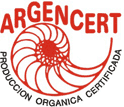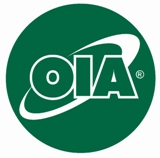For immediate release.
12.04.2008 , Kyiv, Ukraine – From April 10 to 12, 2008, 228 participants from 25 countries came together for the ‘International Conference on the organic sector development in Central/Eastern European and Central Asian countries’ to discuss concepts, opportunities and strategies for developing organic food and farming systems for their countries which in their majority are at an early stage of development. With over 40 presentations from experts and leaders in the organic sector the conference addressed the importance of public and private cooperation, the need for organic action plans, the development of local and export markets as well as certification.
Organised by the Organic Federation of Ukraine, Organic Services, Germany and the National Agricultural University
in cooperation with the Ministry of Agricultural Policy of Ukraine the conference stressed the importance of systematic approaches to organic sector
development. The conference was supported by the Food and Agriculture Organisation (FAO), the European Union (EU), IFOAM and several other organisations and interested parties. With a growing
consumer demand for organic products, organic farming offers alternative strategies and solutions for rural development, thus enhancing economic and social prosperity as well as ecological
sustainability.
The position of the Ukrainian Ministry of Agricultural Policy was presented in the opening speech by its representative Oleksandr Demydov. Several strong statements underlined the wish of Ukraine to further develop its organic sector: “We are aiming at 10% organic farming by 2015. We are ready to support organic market development and to introduce GMO (genetically modified organisms) free regions. Organic offers great opportunities for Ukraine .”
Rainer Krell, FAO emphasised that organic farming has a place in the strategy and policies of FAO in fighting worldwide hunger. The benefits of the organic system are valuable for societies at large. In a 2007 FAO conference on organic farming its potential has been widely acknowledged. Isabelle Peutz, EU Commission, offered an insight into the European Organic Regulation and invited the Ukrainian as well as other governments to request the EU Commission for cooperation and support, as did Mr. Krell for FAO before.
In his welcome address, Gerald A. Herrmann, IFOAM President, said: “We have been successful in establishing a common understanding of organic in the world, and we are far ahead of other sectors in this regard. This conference offers an important opportunity for the emerging organic countries targeted by the conference. About 20 years ago, pioneers among them IFOAM members made first steps on which we can build today.”
Speakers from the region emphasised their activities and shared their valuable experiences. While single countries like Moldova already have a comparable well developed system other countries are lacking still far behind and will need strong dedication and investment in case they want to participate in the economical chances that the growing international organic market offers.
Conference participants unanimously issued the Kyiv Declaration, which concludes that as rural communities are threatened by corporate monopolies and genetic engineering, regional development must be strengthened by all means. The declaration sounds support for public and private collaboration in developing national organic standards, certification and market development that shall focus equally on domestic, regional and export markets as well as on raising of consumer awareness. Financial support schemes shall target market development and not organic farming subsidies only.
The professional and high level presentations will be made available in conference proceedings for information exchange and knowledge transfer among a wider audience. Selected presentations may very well serve as blueprint for public and private stakeholder activities for organic policy and market development.
Conference participants appreciated the hospitality from the National University of Ukraine. Organisers were thanked for having compiled a high level programme and for offering this opportunity for information exchange at a crucial time in which many countries are still thinking about how to shape their organic agricultural system.
The conference would not have been possible without the generous financial support of all its sponsors and cooperating partners.
For further information see www.organic.com.ua
?
Press Release, Responsible: Eugene Milovanov (Organic Federation of Ukraine ), Mildred Steidle (Organic Services)
s.krause@organic-services.com
















